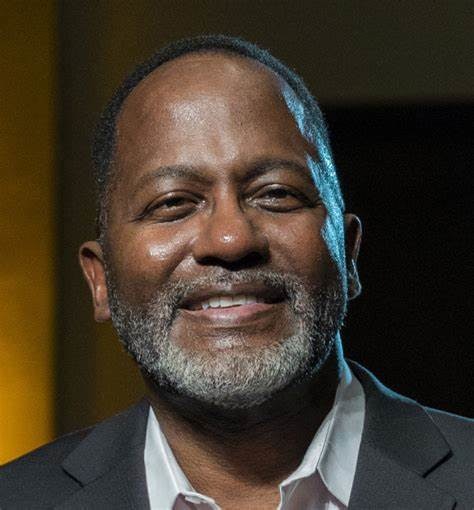In January, Republican lawmakers in Utah fast-tracked a law banning diversity, equity and inclusion trainings and programs on public college campuses — one of the most sweeping bans in the country. Utah Gov. Spencer Cox signed the proposal into law just two weeks after it was introduced.
This story is not exceptional. Since the start of 2023, colleges in at least a dozen states have seen legislative actions taken against their DEI programming, according to The Chronicle of Higher Education.
At the State Higher Education Executive Officers Association’s annual policy conference, college leaders discussed the ways these DEI bans pull them in opposing directions.
On one hand, colleges cannot risk defying legislation aimed at restricting DEI programs for fear of losing state funding. Opponents of DEI programs assert that they divide students and employees and undermine free speech.
But on the other, college officials often say these programs play a significant role in boosting student achievement.
“What we were doing in DEI is so critical to student success that we don’t want to abandon our efforts,” Geoffrey Landward, commissioner at the Utah System of Higher Education, said during a Tuesday panel.
Build rapport with lawmakers
Landward advocated for university leaders and governing boards to build rapport with lawmakers — a challenging prospect when there is often an “us versus them” mentality between the two groups.
Lawmakers won’t invite higher education leaders to discuss policy issues unless they trust those officials are there to find solutions, he said. And building that trust takes time and effort.
“You either are at the table — being able to help draft and address these issues through the language of the bill — or you’re not,” Landward told conference attendees. And the latter often produces the most damaging outcomes for colleges, he said.
The overwhelming majority of anti-DEI bills have come from Republican lawmakers and passed in GOP-led states. But the Republican party is not a monolith, said TJ Bliss, the Idaho State Board of Education’s chief academic officer.
In Idaho, Republicans have controlled both chambers of the Legislature and the governor’s mansion since 1995. But Bliss noted a schism within his state’s conservative movement around how to approach higher education.
The Idaho Republican Party’s platform includes seemingly contradictory language about higher education, Bliss said. For one, the platform, adopted June 2024, acknowledged “the importance of Idaho’s higher education system.”
It also says lawmakers “strongly support professional technical and continuing education programs that provide career readiness and college preparation, but do not support using taxpayer funding for programs beyond high school.”
That dissonance leaves room for higher education officials to advocate for and reinforce the value of student success programs.
“Having those conversations, asking those questions, and approaching it legislator by legislator and staff by staff — this is how we have to go about this right now,” Bliss said.
Rachel Boone, the Iowa Board of Regents’ chief academic officer, echoed other panelists’ comments.
In April, Iowa legislators tacked a broad DEI ban onto the state budget. The amendment directs colleges to eliminate any DEI functions that are not necessary for legal compliance or accreditation. The move came after the state’s board of regents banned all campuswide diversity and inclusion work not required for legal or accreditation compliance in November.
The rapid passage of the legislative ban took Boone off balance, she said.
“These universities cannot turn on the dime,” she recounted telling legislators. “These are medium-sized cities all on their own.”
But conversations with lawmakers resulted in the ban going into effect July 2025, rather than last month, giving Iowa’s colleges more lead time to comply.
Broad language and loopholes
A recurring criticism lobbed at legislative proposals aimed at restricting DEI is that they are too broad. The expansive language can leave college employees unsure of what a law explicitly permits. It can also prompt some leaders to look for wiggle room.
“There is an instinct to find the technical loopholes in a bill and exploit them to maintain what we were doing before,” Landward said. But he called that approach a “huge strategic mistake.”
“I’m a lawyer,” Landward said. “That approach would have been a lot of fun — until the next session.”
If lawmakers see colleges intentionally skirting the intention of the legislation, they may pull funding from colleges and shut out higher ed leaders from the negotiating table, he said.
Boone agreed.
“The law in Iowa has loopholes to be found,” she said. “But we’ve got to be intellectually honest about how we do this.”
Alternatively, approaching the new mandates in good faith can allow colleges to make counter proposals.
For example — “Pass your legislation, let us keep money, and let’s keep it invested in student access and student success,” Landward said. “But in a way where you feel comfortable that every student has access to those resources.”
In Utah’s case, the state ban replaces DEI offices with broad student “success and support” centers. Cox praised the change when signing the bill, noting that the DEI funding would be “repurposed” instead of eliminated entirely.
Boone said she will approach lawmakers about working with the Iowa Board of Regents as an alternative to enacting legislation.
“I will ask, how can the board help you accomplish that without having to pass a law?” she said.
#college #leaders #engage #conservative #lawmakers #DEI










